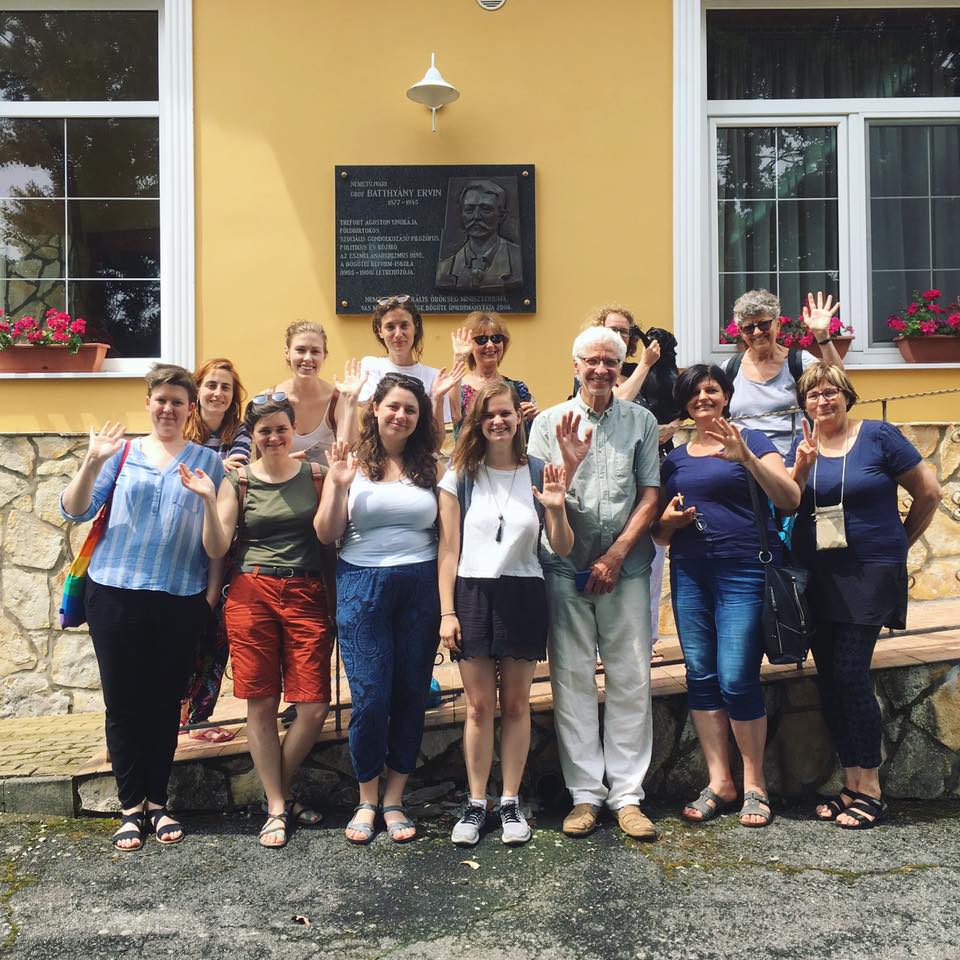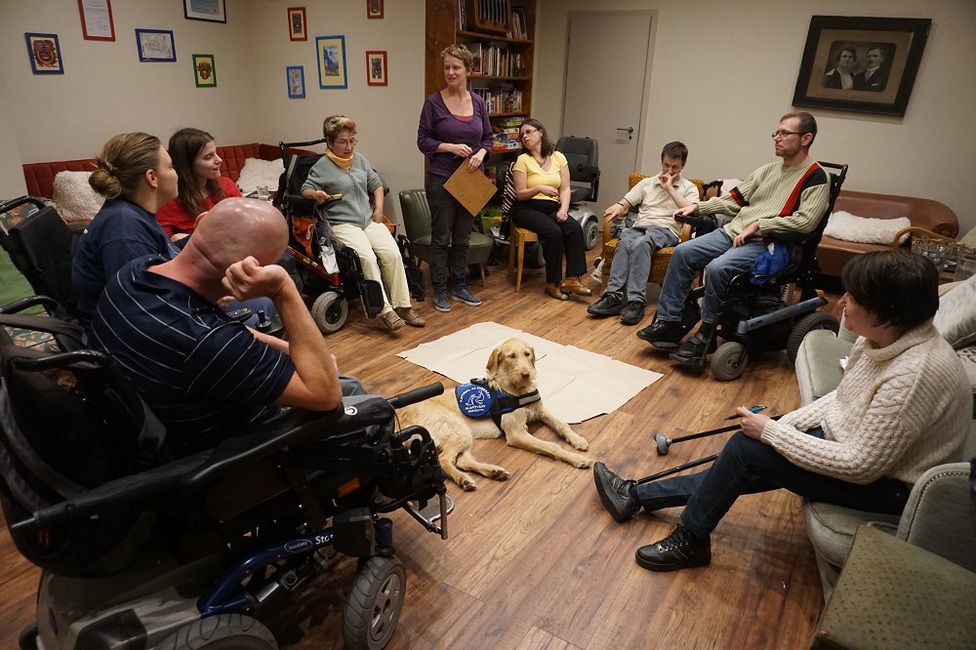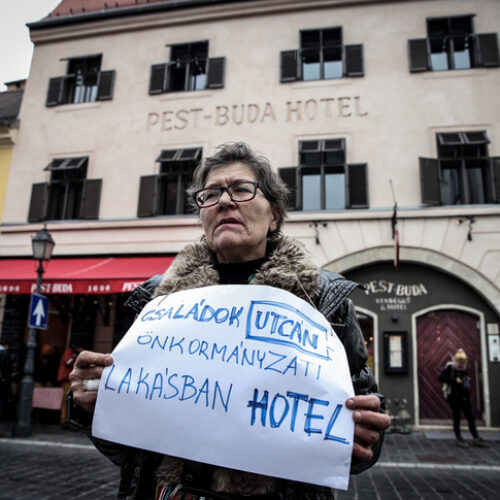The School of Public Life is a grassroots training and research centre in Budapest that promotes active citizenship and social movement organising.
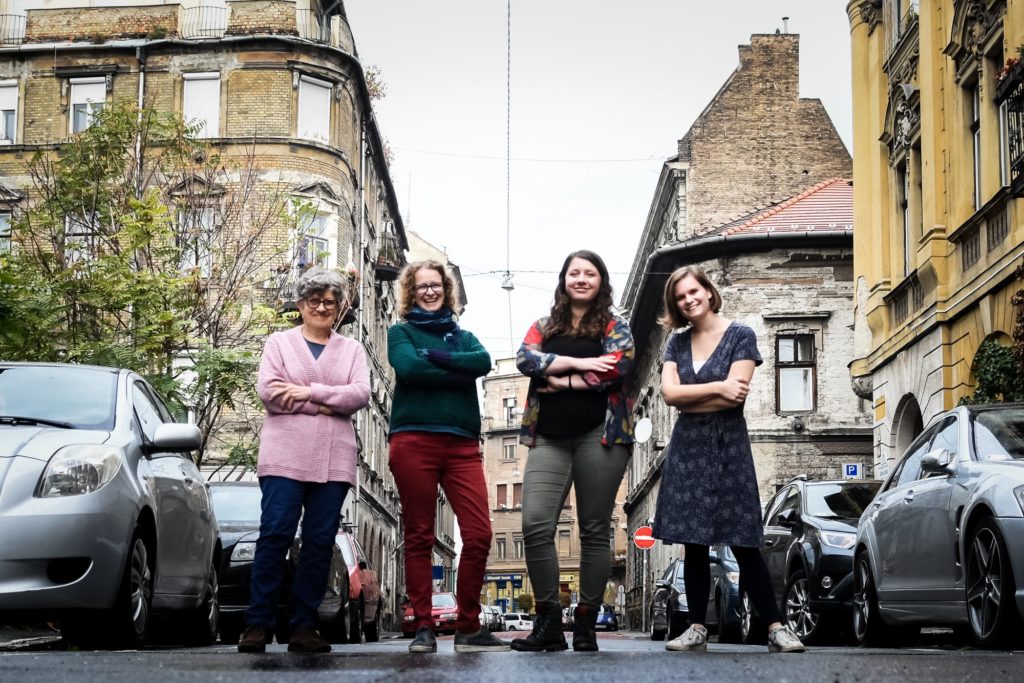
The School of Public Life was founded in 2014 in Budapest, Hungary. It aims to strengthen democracy by providing practical and theoretical education to individuals and organisations involved in grassroots struggles for a more just and equitable society. The School specialises in 1) short and long-term trainings for adults from diverse social and ethnic groups, 2) publications on social justice, 3) participation, participatory action research and 4) strategic planning for civil society organisations. In 2018 they worked with over 600 participants from over 120 organisations. Their headquarters are in the capital, Budapest and the team is currently in the process of expanding their operations to the countryside by launching their first regional chapter in Miskolc in the Northeast Hungary.
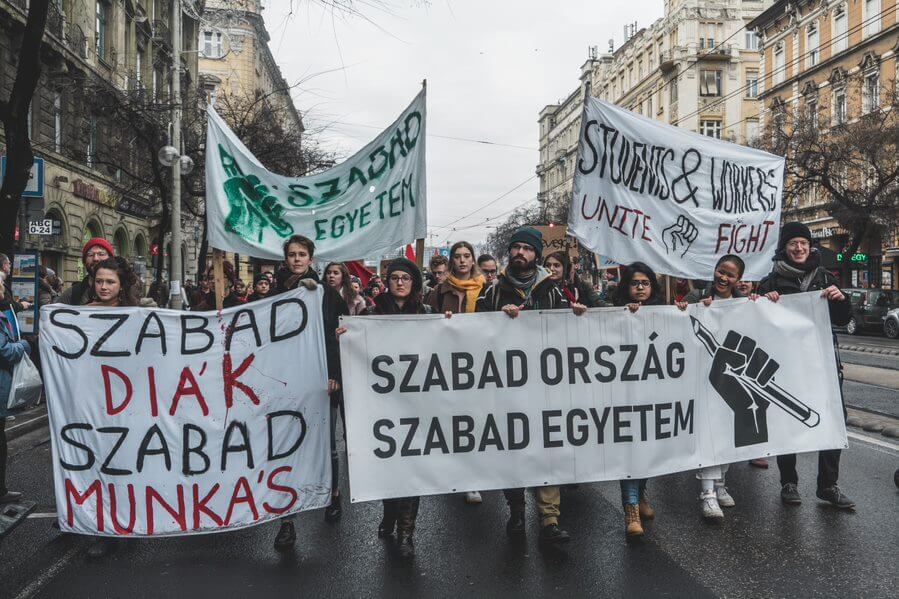
The Situation Being Tackled…
Democratic engagement and civic participation are core values that create links among societies transcending cultures and continents. For a real democracy, members of the community have to be aware that their powers as citizens go beyond casting their ballot every 4 years. To participate effectively in public life and shape the decisions that affect them, citizens need the individual skills and collective capacities to articulate their needs and voice their concerns effectively. Amidst ongoing public discussion about the democratic deficit of the European Union as well as the U.S., Hungarian democracy is ailing. Despite the transition to a multiparty election system in 1989, most citizens feel alienated from politics and people who experience social exclusion are particularly powerless when it comes to representing their interests. Civil society organisations are often too dependent on the state to exercise meaningful critique and tend to work on an ad hoc basis.
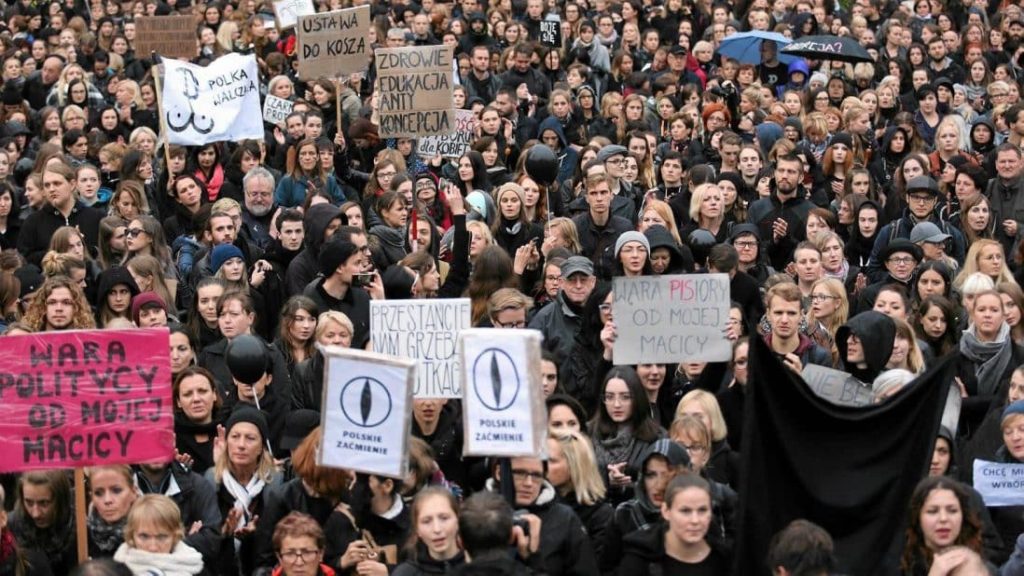
The Hungarian government has taken an anti-poor, authoritarian turn that has led to growing poverty and the weakening of civil society. In order to challenge large-scale civic disempowerment and develop the culture of democracy and social inclusion in Hungary, the School of Public Life was founded. Through education, research and development the School supports socially disadvantaged people and the organisations that represent them to become more powerful advocates of their rights and interests, produce their own knowledge and develop strategic responses to the problems they identify.
“Democracy in not a noun, but a verb” – political education for social movements in Hungary
The Principles of The School of Public Life
Participation: People who are affected by a decision need to be meaningfully involved in the decision-making.
Community-Centredness: The world works better if we work together, collaborate with each other and put the community first.
Social Justice: Respect every human being, regardless of their level of education, gender, skin colour, religion or social status, and it is essential to a good life that everyone’s basic needs are fully met.
Simplicity: A good life is not measured by accumulation of material goods, and an organisation must operate in harmony with its social, physical and natural environment. To do this, we must take responsibility for our common resources.
The Personal is Political: Changes in society are inseparable from personal changes, therefore all personal issues are political issues and work cannot just go into public life, but must also be about people’s private selves, their communities and their constantly sculpted personalities.
Solidarity: Different social groups are stronger when they come together, recognise the oppression of the social system and stand up for the disadvantaged. Solidarity is not regret, but recognition and breakdown of oppression.
Systems Critical Thinking: A democratic community can work well if its members can make well-informed decisions about both their own lives and the life of the community. This requires thinking about the economic and political systems that make up our society. Knowledge of the systemic mechanisms of oppression enables people to better understand the processes in the society around them and the prevailing socio-political relationships, and thus to better address the injustices they are experiencing.
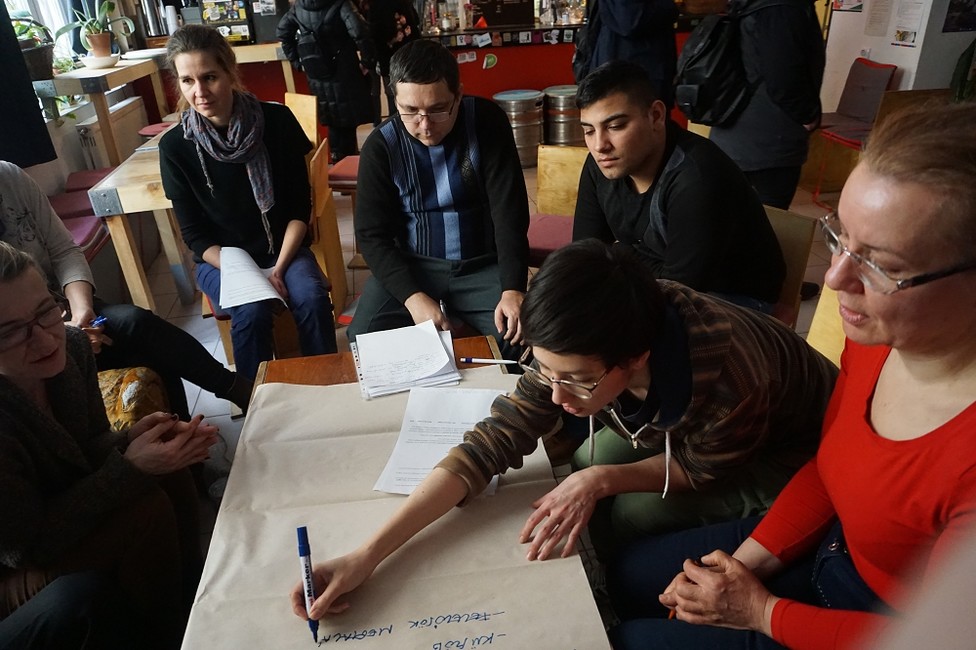
The Guerrilla Grant
Our grant, will cover the expenses of a staff member for the ‘rural’ chapter of the School of Public Life in Miskolc as well as the costs of various training courses for activists and volunteers of grassroots organisations in the spring of 2020. The School of Public Life plans to organise the following courses from January to July, 2020 (this can change slightly due to emerging demands by NGOs and organisations and the changing political climate):
* Nature of Power
* Introduction to Participatory Action Research
* Media in Advocacy
* Organising Actions
* Introduction to Civil Disobedience
* How to Moderate Discussions
* Gender Inequalities and Advocacy
* Photography and Activism
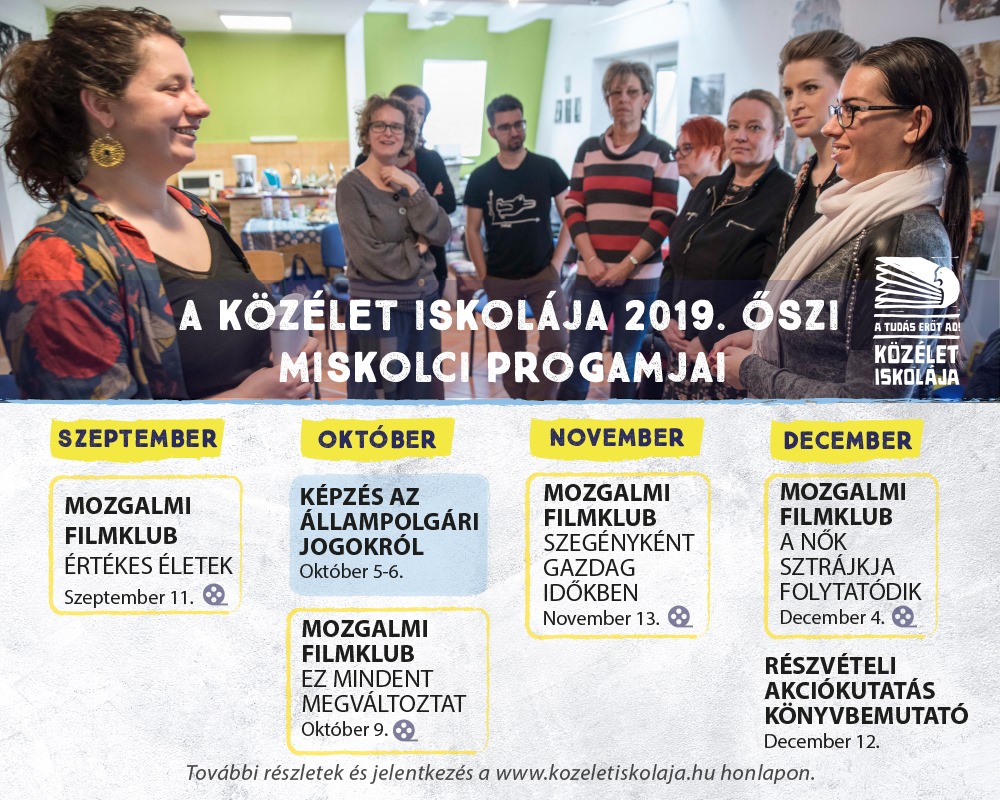
The indicators of success will include the number of people who attended the trainings (expected 15 to 25 participants in each training) and the assessment of the participants (expected to give an average of at least 4.5 on a scale of 5 for both the training and the trainers on the end-of-course evaluation sheet).
Regarding the Miskolc chapter, after one year of preparation, the first full-time employee from January, 2020 will be hired to provide a solid foundation for the local operations. This person will be responsible for organising the training courses in Miskolc, recruiting participants and volunteers and building a local outreach strategy. The indicators of success include the organisation of at least two (ideally three) training courses in the semester with at least 15 participants in each. In addition, this person will organise at least two film screenings on social movements and make personal interviews with 5 to 10 individuals from progressive local organisations.
